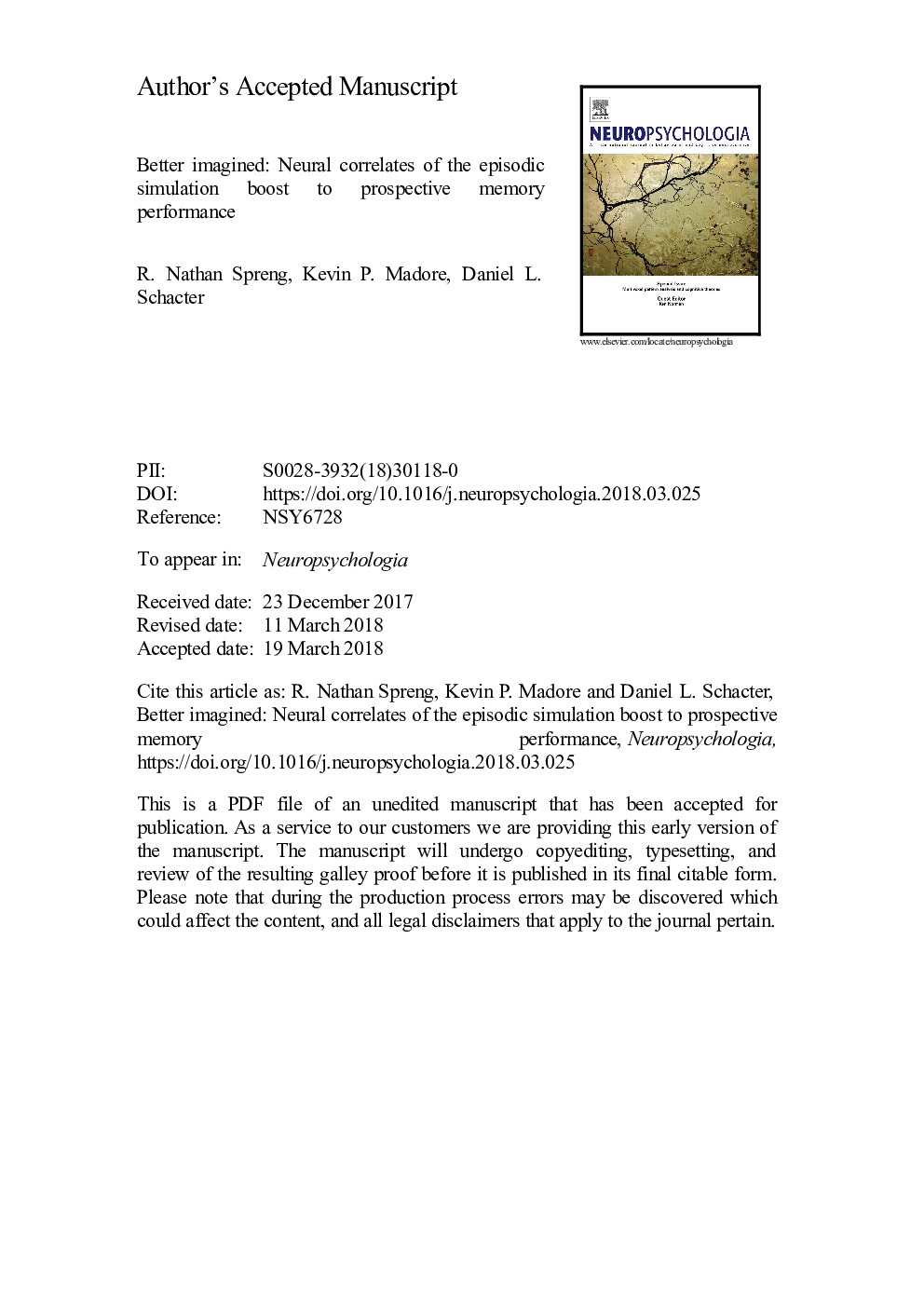| Article ID | Journal | Published Year | Pages | File Type |
|---|---|---|---|---|
| 7317669 | Neuropsychologia | 2018 | 22 Pages |
Abstract
Episodic simulation is an adaptive process that can support goal-directed activity and planning success. We investigated the neural architecture associated with the episodic simulation improvement to the likelihood of carrying out future actions by isolating the brain regions associated with this facilitation in a prospective memory paradigm. Participants performed a lexical decision task by making word/non-word judgments, with rarely occurring prospective memory target words requiring a pre-specified manual response. Prior to scanning, participants were given exposure to two lists of prospective memory targets: animals and tools. In a fully counterbalanced design, participants generated a rhyme to one target list and imagined their subsequent encounter (episodic simulation) with target words on the other list. Replicating prior behavioral work, episodic simulation improved subsequent prospective memory performance. Brain activation was assessed in a multivariate partial least squares analysis. Relative to lexical decision blocks with no prospective memory demand, sustained prospective memory replicated prior observations of frontal polar activation. Critically, maintaining the intention to respond to simulated targets, over and above rhyme targets, engaged middle frontal and angular gyri, and medial parietal and prefrontal cortices. Transient activity associated with prospective memory target hits revealed activation for simulated targets in medial prefrontal cortex, posterior cingulate, lateral temporal lobe and inferior parietal lobule. In contrast, rhyme target hits engaged more left lateralized dorsolateral prefrontal cortex and anterior insula. Episodic simulation, thus effectively shifts executive control strategy and boosts task performance. These results are consistent with a growing body of evidence implicating executive control and default network region interactions in adaptive, goal-directed behavior.
Related Topics
Life Sciences
Neuroscience
Behavioral Neuroscience
Authors
R. Nathan Spreng, Kevin P. Madore, Daniel L. Schacter,
